Find Help
More Items From Ergsy search
-
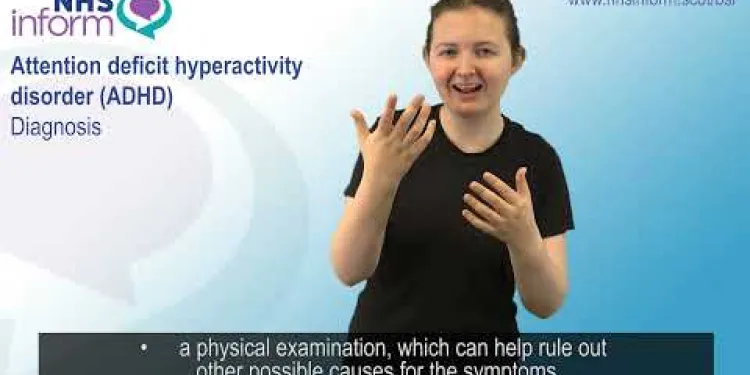
Attention deficit hyperactivity disorder (ADHD) - Diagnosis
Relevance: 100%
-
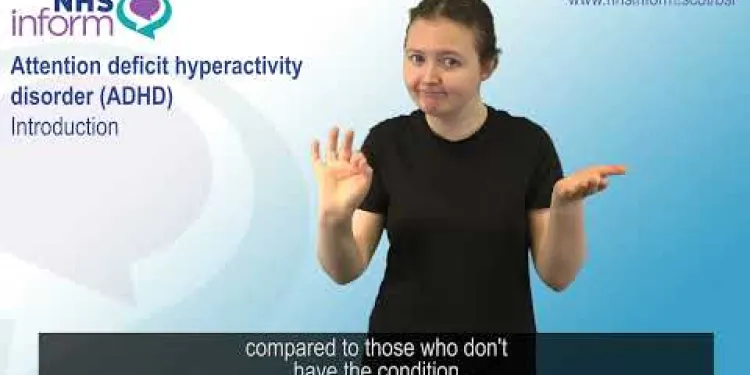
Attention deficit hyperactivity disorder (ADHD) - Introduction
Relevance: 86%
-
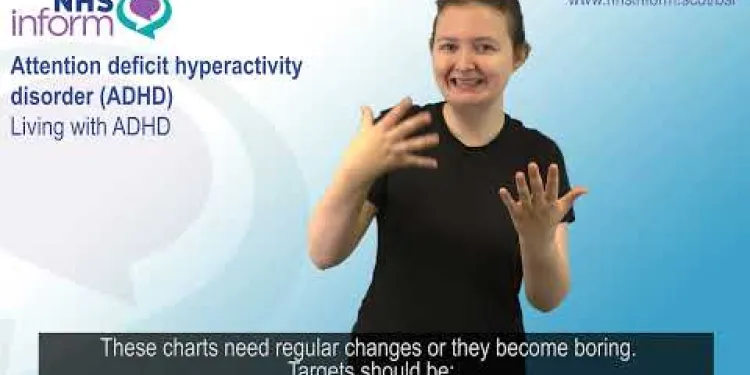
Attention deficit hyperactivity disorder (ADHD) - Living with ADHD
Relevance: 82%
-
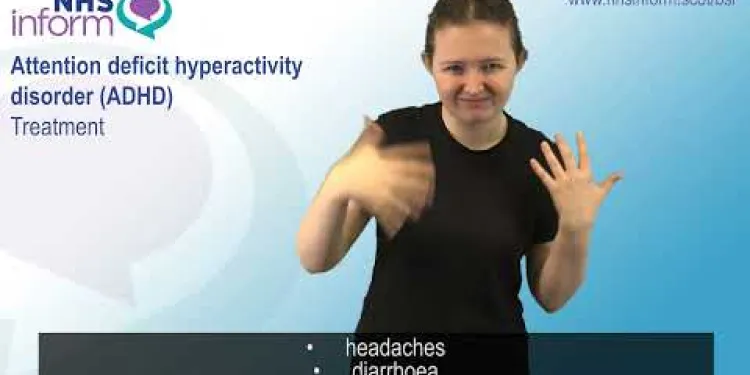
Attention deficit hyperactivity disorder (ADHD) - Treatment
Relevance: 78%
-
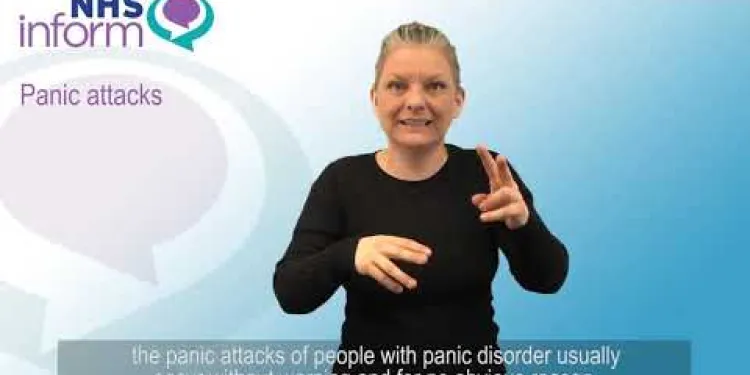
BSL - Diagnosis of panic disorder
Relevance: 41%
-
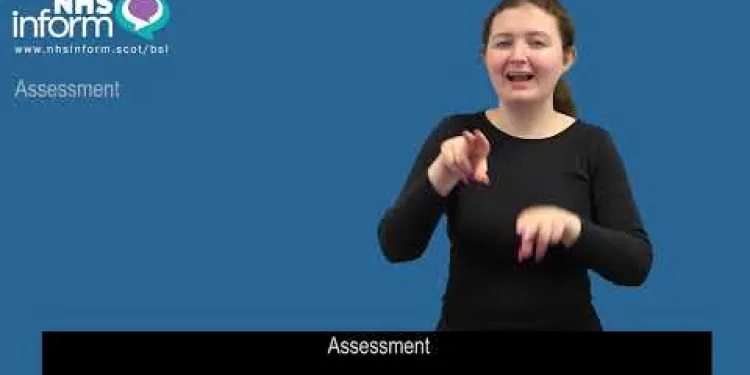
BSL - Diagnosis of obsessive compulsive disorder (OCD)
Relevance: 34%
-
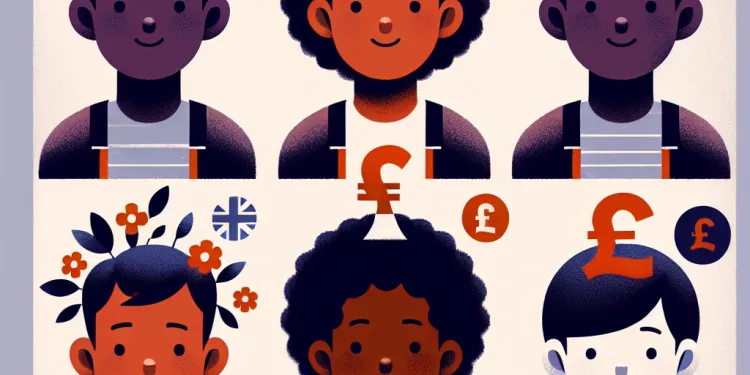
Is ADHD more common in boys or girls?
Relevance: 29%
-

How is ADHD diagnosed?
Relevance: 29%
-

Are there different types of ADHD?
Relevance: 29%
-
How are eating disorders diagnosed?
Relevance: 28%
-

What are some common types of SEND?
Relevance: 26%
-

What are the main symptoms of ADHD?
Relevance: 23%
-

What is ADHD?
Relevance: 23%
-

Can ADHD be inherited?
Relevance: 23%
-
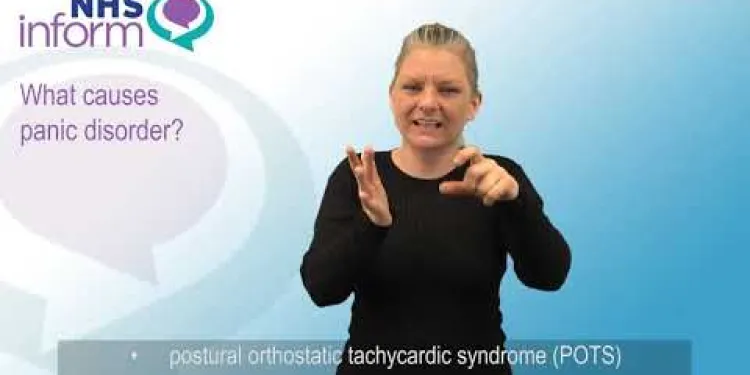
BSL - Introduction to panic disorder
Relevance: 23%
-

What causes ADHD?
Relevance: 23%
-
What is an eating disorder?
Relevance: 22%
-
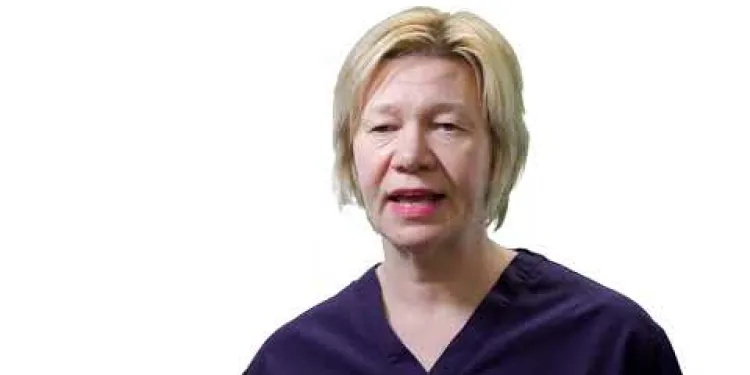
Head and Neck Cancer Diagnosis
Relevance: 22%
-
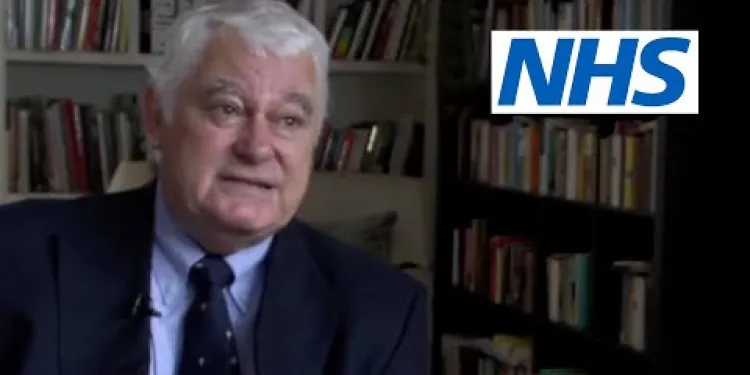
Bipolar disorder: Rod's story | NHS
Relevance: 22%
-
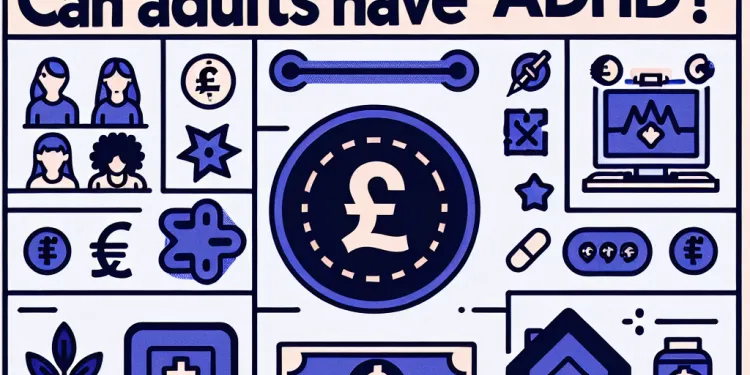
Can adults have ADHD?
Relevance: 22%
-
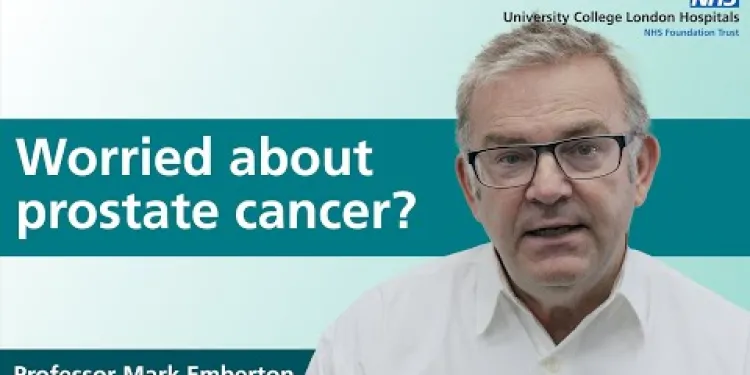
Prostate cancer diagnosis and tests
Relevance: 22%
-
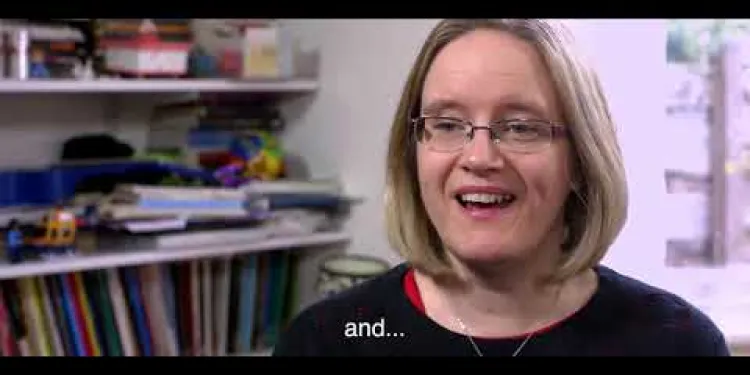
Living with Foetal Alcohol Spectrum Disorder (FASD), a mum’s journey (full version)
Relevance: 22%
-
What is an Eating Disorder?
Relevance: 21%
-
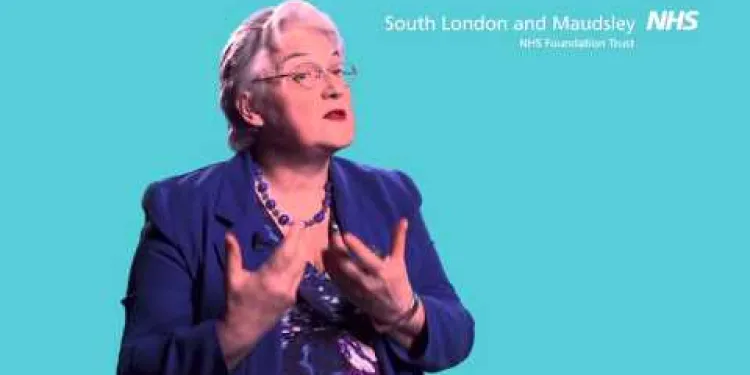
Eating disorders: treatment
Relevance: 21%
-
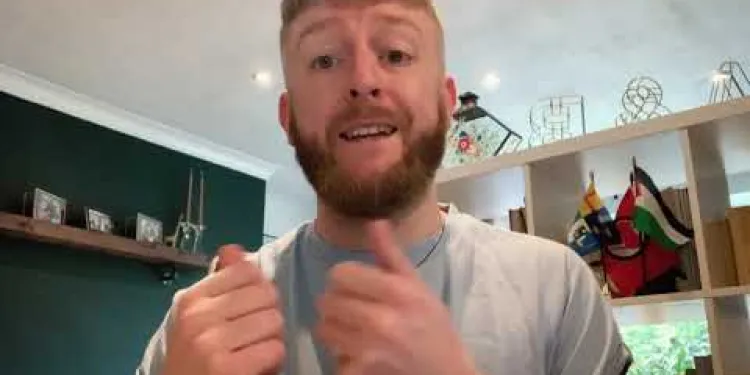
Living with Bipolar Disorder
Relevance: 21%
-
What are some common myths about eating disorders?
Relevance: 21%
-
Is it possible to recover from an eating disorder?
Relevance: 21%
-
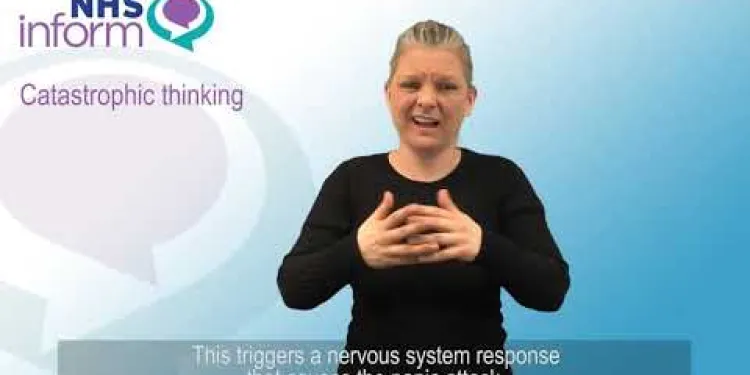
BSL - Causes of panic disorder
Relevance: 20%
-
Are there preventative measures for eating disorders?
Relevance: 20%
-
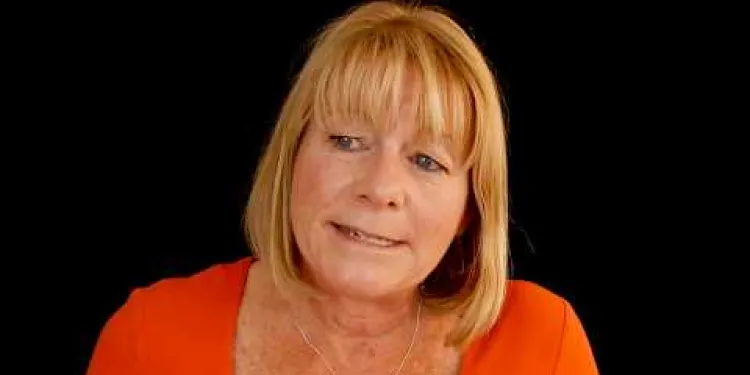
The treatment approach for an eating disorder
Relevance: 20%
-
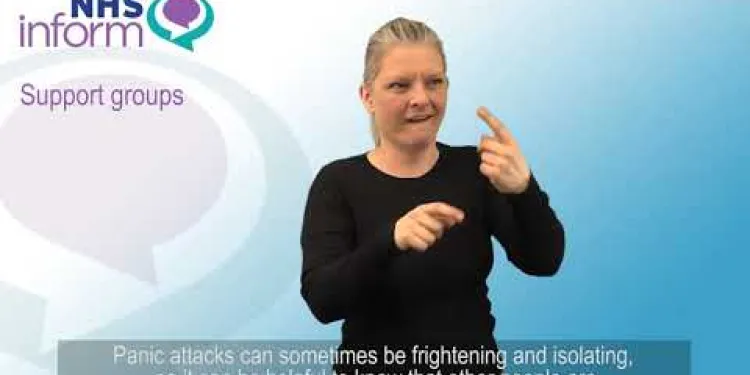
BSL - Treatment of panic disorder
Relevance: 20%
-
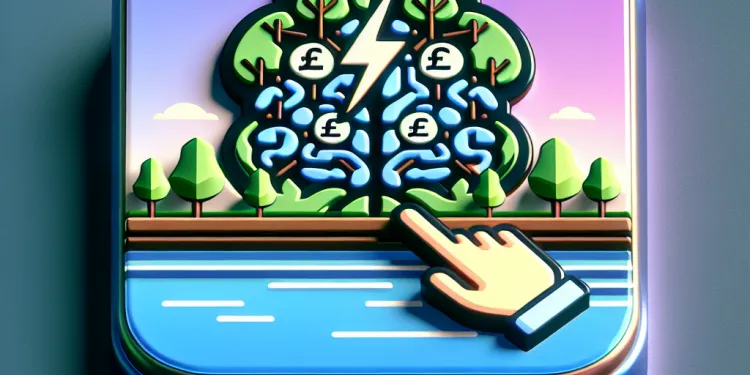
What role does the environment play in ADHD?
Relevance: 20%
-
Can eating disorders be treated?
Relevance: 20%
-
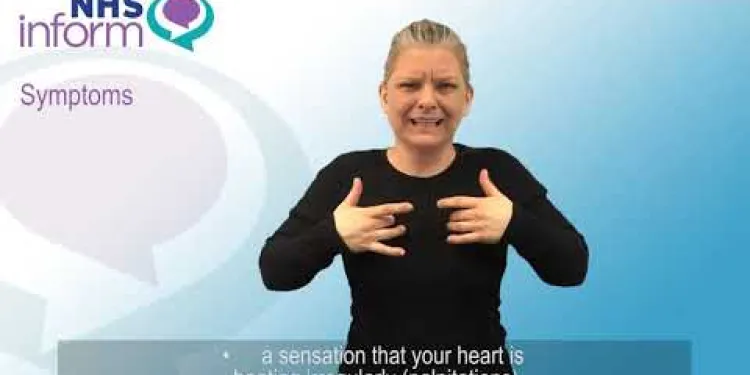
BSL - Symptoms of panic disorder
Relevance: 20%
-
What are the early warning signs of an eating disorder?
Relevance: 20%
-
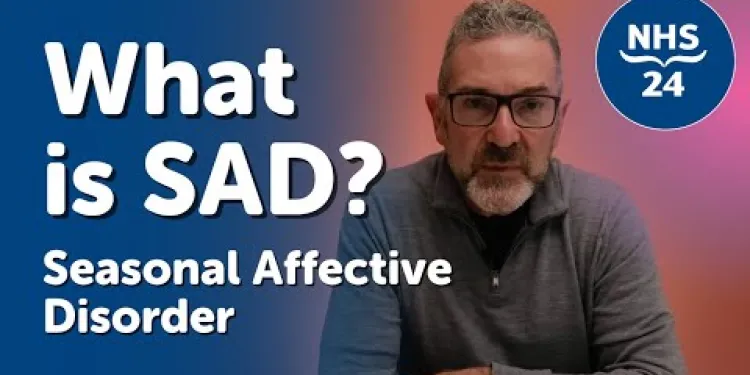
What is Seasonal Affective Disorder? (SAD)
Relevance: 20%
-
Who is at risk for developing an eating disorder?
Relevance: 20%
-
Are eating disorders only about food?
Relevance: 20%
-
What are the main types of eating disorders?
Relevance: 20%
-
Can eating disorders occur with other mental health conditions?
Relevance: 20%
Diagnosis of Attention Deficit Hyperactivity Disorder (ADHD)
Understanding ADHD
Attention Deficit Hyperactivity Disorder (ADHD) is a neurodevelopmental disorder characterised by symptoms of inattention, hyperactivity, and impulsivity. It can affect both children and adults, impacting their daily lives, academic performance, and social interactions. Early diagnosis and intervention are crucial for managing ADHD effectively.
Recognizing Symptoms
ADHD symptoms are typically grouped into two categories: inattentiveness and hyperactivity/impulsiveness. Inattentive symptoms may include difficulty sustaining attention, careless mistakes, and being easily distracted. Hyperactive-impulsive symptoms might involve fidgeting, difficulty waiting for turns, and excessive talking. These symptoms must be present for at least six months and observed in different settings, such as home and school, to consider an ADHD diagnosis.
When to Seek Medical Advice
If you suspect you or your child may have ADHD, it is important to seek advice from a healthcare professional. In the UK, you can start by speaking with a General Practitioner (GP). The GP may conduct initial assessments and, if necessary, refer you to a specialist, such as a psychiatrist, psychologist, or paediatrician for further evaluation.
The Diagnostic Process
Diagnosis of ADHD typically involves a multi-step process. This includes:
- Medical History: The healthcare provider will gather comprehensive medical, family, and developmental history to rule out other conditions.
- Questionnaires and Rating Scales: Standardised questionnaires may be used to assess the presence and severity of ADHD symptoms.
- Clinical Interviews: Interviews with the individual and family members can provide detailed insights into behavioural patterns.
- Observations: Observing the individual in different settings (like school or home) helps understand how symptoms affect their daily life.
Challenges in Diagnosis
Diagnosing ADHD can be complex due to overlapping symptoms with other conditions like anxiety, depression, or learning disabilities. Furthermore, ADHD symptoms manifest differently in adults compared to children, requiring age-appropriate assessment tools and diagnostic criteria. In the UK, efforts are made to ensure accurate diagnosis and appropriate support through services like the NHS and specialist clinics.
Post-Diagnosis Support
Following a diagnosis, creating a treatment plan involving behavioural strategies, educational support, and possibly medication can help manage symptoms. In the UK, support services, informational resources, and local ADHD support groups are available to assist individuals and families in coping with ADHD.
Diagnosis of Attention Deficit Hyperactivity Disorder (ADHD)
Understanding ADHD
ADHD stands for Attention Deficit Hyperactivity Disorder. It means having trouble paying attention, being very active, and acting without thinking. Kids and adults can have ADHD. It can make school, work, and making friends hard. Finding out if someone has ADHD early helps them get better help.
Recognizing Symptoms
There are two main kinds of ADHD symptoms: trouble paying attention and being too active. Trouble paying attention can look like making simple mistakes, not listening, and getting distracted easily. Being too active can mean moving a lot, talking too much, and not being able to wait for turns. These symptoms should be seen for at least six months and happen at both home and school for a ADHD diagnosis.
When to Seek Medical Advice
If you think you or your child might have ADHD, it’s important to talk to a doctor. In the UK, start by visiting a General Practitioner (GP). The GP can do first checks and might send you to a specialist, like a psychiatrist, psychologist, or children’s doctor, for more tests.
The Diagnostic Process
Finding out about ADHD can take a few steps:
- Medical History: The doctor will ask about health, family, and how you grew up to see if something else might be causing the symptoms.
- Questionnaires and Rating Scales: You might fill out forms to show what symptoms you have and how strong they are.
- Clinical Interviews: Talking to you and your family can help the doctor understand your behavior better.
- Observations: Watching you in different places, like school and home, can show how symptoms affect your life.
Challenges in Diagnosis
Finding out if someone has ADHD can be tricky because it can look like other problems such as anxiety or depression. ADHD also looks different in adults than in children, so it needs different tests. In the UK, they try to make sure people get the right diagnosis and help through services like the NHS and special clinics.
Post-Diagnosis Support
After finding out someone has ADHD, making a plan can help them feel better. This plan might include learning new ways to behave, getting help at school, and maybe medicine. In the UK, there are services, information, and ADHD groups to help people and their families manage ADHD.
Frequently Asked Questions
What is ADHD?
Attention deficit hyperactivity disorder (ADHD) is a neurodevelopmental disorder characterised by symptoms of inattention, hyperactivity, and impulsiveness that are more severe and frequent than typically observed at a comparable level of development.
How is ADHD diagnosed?
ADHD is diagnosed through a comprehensive evaluation by a healthcare professional, typically a psychiatrist or clinical psychologist. The assessment usually includes interviews, behavioural observations, and the use of structured questionnaires or rating scales.
At what age can ADHD be diagnosed?
ADHD can be diagnosed in children as young as 4 years old; however, symptoms typically become evident between the ages of 6 and 12. Adults can also be diagnosed with ADHD, often after recognising their symptoms or having children diagnosed.
What are common symptoms of ADHD?
Common symptoms include difficulty sustaining attention, following through on tasks, excessive fidgeting, inability to sit still, and acting without thinking. These symptoms must be present for at least six months and be inappropriate for the developmental level.
Can adults have ADHD?
Yes, adults can have ADHD. Many adults have lived with the symptoms without diagnosis and only discover they have ADHD later in life, sometimes after their children are diagnosed.
Is there a test for ADHD?
There is no single test for ADHD. Diagnosis is based on a thorough clinical assessment, including a detailed history, interviews, and symptom checklists. Sometimes additional psychological or educational assessments are used.
Can ADHD be misdiagnosed?
Yes, ADHD can be misdiagnosed as its symptoms overlap with other conditions such as anxiety, depression, and learning disabilities. Accurate diagnosis requires a comprehensive assessment by an experienced healthcare professional.
What should I do if I think my child has ADHD?
If you suspect your child has ADHD, you should consult with your GP. The GP can refer you to a specialist for a comprehensive evaluation. Early diagnosis and intervention can help manage symptoms more effectively.
What types of specialists diagnose ADHD in the UK?
In the UK, ADHD can be diagnosed by child and adolescent psychiatrists, clinical psychologists, paediatricians, and specialist ADHD nurses. Adult ADHD can be diagnosed by psychiatrists, specialist nurses, and psychologists.
Are there different types of ADHD?
Yes, there are three types of ADHD: primarily inattentive presentation, primarily hyperactive-impulsive presentation, and combined presentation, which includes symptoms of both inattentiveness and hyperactivity/impulsivity.
Can ADHD be treated?
ADHD can be managed with a combination of treatments including medication, behavioural therapy, psychotherapy, and educational support. The most effective treatment plan varies for each individual.
What medications are commonly used to treat ADHD?
Common medications for treating ADHD include stimulants like methylphenidate (e.g., Ritalin) and amphetamines (e.g., Adderall), as well as non-stimulant medications such as atomoxetine (Strattera) and guanfacine (Intuniv).
Can lifestyle changes help manage ADHD symptoms?
Yes, lifestyle changes such as maintaining a consistent routine, engaging in regular physical exercise, eating a balanced diet, and practising good sleep hygiene can help manage ADHD symptoms.
Are there support groups for people with ADHD in the UK?
Yes, there are several support groups and organisations that offer resources and support for individuals with ADHD and their families in the UK, including the ADHD Foundation and ADDISS (The National Attention Deficit Disorder Information and Support Service).
How can schools support children with ADHD?
Schools can support children with ADHD by providing classroom accommodations such as extra time for tasks, using visual aids, implementing behavioural intervention strategies, offering breaks for physical activity, and working closely with parents and healthcare providers.
What is ADHD?
ADHD means Attention Deficit Hyperactivity Disorder. It makes it hard to sit still, pay attention, or control actions. People with ADHD might talk a lot, move around a lot, and get distracted easily.
To help, try using charts, reminders, or a timer. Talk about it with a doctor or teacher. They can give advice and support.
ADHD is a brain condition. It makes it hard for some people to pay attention, stay still, or think before they act. This happens more often and can be stronger than what is usual for their age.
How do doctors know if someone has ADHD?
Doctors have a way to find out if someone has ADHD. Here is how they do it:
- Talking and Asking Questions: The doctor talks to the child and their family. They ask questions about how the child behaves at home and in school.
- Watching Behavior: The doctor will look at how the child acts in different places, like at home and at school.
- Checking School Reports: The doctor will read reports from the child’s teachers.
- Using Checklists: They use special checklists to see if the child has signs of ADHD.
- Doctor's Notes: The doctor might write down what they see and hear.
If you think your child might have ADHD, here are some tools and tips that might help:
- Visual Schedules: Use pictures and clear steps to show the child what to do each day.
- Extra Time: Give the child more time to finish tasks or understand instructions.
- Break Tasks Into Small Steps: Make tasks smaller so they are easier to manage.
- Positive Praise: Give lots of praise when they do something well.
These tools can help the child do better at school and home.
Doctors find out if someone has ADHD by doing a careful check-up. This usually happens with a special doctor like a psychiatrist or psychologist. They will talk with you, watch how you behave, and ask you to fill out some forms or answer questions.
How old do you have to be to know if you have ADHD?
Doctors can find out if children have ADHD when they are as young as 4. But usually, signs show up when kids are between 6 and 12. Grown-ups can find out they have ADHD too, often when they see their own signs or when their kids find out they have it.
Tools like picture stories, talking therapies, or using timers can help people with ADHD.
What are common signs of ADHD?
Here are signs of ADHD:
- Finding it hard to pay attention.
- Moving around a lot when you should stay still.
- Acting without thinking.
Try these tips:
- Use pictures to help you understand.
- Ask someone to read with you.
- Break tasks into small steps.
Common signs are having trouble paying attention for a long time, not finishing things, moving around too much, not being able to sit still, and doing things without thinking first. These signs must be there for at least six months and not match what's expected for someone their age.
It can help to use tools like timers to remember when to take breaks, or charts to track tasks. Also, simple step-by-step guides can make tasks easier to follow.
Do grown-ups get ADHD?
Yes, grown-ups can have ADHD. ADHD is a condition that makes it hard to pay attention and stay still. It is not just for kids.
If you think you might have ADHD, you can talk to a doctor. They can help you find out. There are tools and tips that can help you manage ADHD. For example, you can use reminders or checklists to keep track of tasks.
Yes, grown-ups can have ADHD. Many grown-ups have the signs but don't know they have it. They might find out they have ADHD when their kids are told they have it.
Can you test for ADHD?
Yes, doctors can help find out if someone has ADHD.
If you think you have ADHD, talk to a doctor. The doctor will ask questions to learn more about you. They might talk to your family or teachers too.
This can help the doctor understand if you have ADHD.
Using pictures or stories might make it easier to explain how you feel.
You can also ask someone you trust to go with you to the doctor.
There is no one test to find out if someone has ADHD. To know for sure, a doctor needs to do a careful check-up. This includes talking to the person and asking questions about their history and behaviors. They might also use lists to check for symptoms. Sometimes, other tests or school work checks can help too.
Can ADHD be diagnosed wrong?
Yes, sometimes people think someone has ADHD when they do not. This is because ADHD looks like other things, like feeling very worried (anxiety), feeling very sad (depression), or having trouble learning. A doctor who knows a lot about this needs to do some careful tests to find out for sure if someone has ADHD.
What to Do if You Think Your Child Has ADHD
If you think your child might have ADHD, here are some steps you can take:
- Talk to Your Doctor: Make an appointment with your child's doctor. They can help check if your child has ADHD.
- Write Down Your Concerns: Keep a list of the behaviors you notice. This can help the doctor understand what is happening.
- Ask for School Support: Talk to your child's teacher. They can offer help and support at school.
- Look for Information: Read books or use the internet to learn more about ADHD. This can help you understand it better.
- Join a Support Group: Find a group of parents who have children with ADHD. Talking to others can help you feel supported.
These steps can help you and your child get the right support and care.
If you think your child might have ADHD, talk to your doctor. The doctor can send you to someone who knows a lot about ADHD. Finding out early can help make things better for your child.
Who can tell if someone has ADHD in the UK?
ADHD means "Attention Deficit Hyperactivity Disorder." If you think someone has ADHD, they need to see special doctors. These doctors know a lot about ADHD.
In the UK, these are the people who can say if someone has ADHD:
- Child psychiatrist - A doctor who works with children and knows about ADHD.
- Paediatrician - A children's doctor who understands ADHD.
- Psychologist - A person who studies how people think and act. Some know a lot about ADHD.
- Specialist nurse - A nurse who has special training to help with ADHD.
To help understand ADHD better, you can use:
- Pictures or drawings to explain things.
- Simple words and short sentences.
- Stories or books about people with ADHD.
If you need help when reading, ask someone you trust to explain things to you.
In the UK, certain doctors and nurses can tell if someone has ADHD. For children, this can be done by child doctors, child mind doctors, doctors for kids, and special ADHD nurses. For grown-ups, it's something mind doctors, special nurses, and mind helpers do.
Are there different types of ADHD?
There are three types of ADHD. ADHD is a condition that makes it hard to focus and sit still. Here are the three types:
- Inattentive Type: This means it is hard to pay attention.
- Hyperactive-Impulsive Type: This means a person may move a lot and act without thinking.
- Combined Type: This means having both inattentive and hyperactive-impulsive traits.
If you find reading hard, here are some tools that might help:
- Use audiobooks to listen instead of reading.
- Highlight important words.
Yes, there are three types of ADHD:
1. Mainly inattentive type: This means the person finds it hard to pay attention.
2. Mainly hyperactive-impulsive type: This means the person is very active and acts without thinking.
3. Combined type: This means the person has trouble paying attention, is very active, and acts without thinking.
Helpful tools: You can use a timer to help stay focused. Lists can help remember tasks. Taking breaks can help with restlessness.
Can ADHD be helped?
Yes, people with ADHD can get help to feel better.
Doctors can give medicine to help people pay attention better.
Talking to a therapist can also be a good way to learn new skills.
Doing things like making lists and using calendars can help, too.
People with ADHD can get help in a few ways. Medicine can help. Talking to someone who can teach you new habits can help too. Learning support at school is also good. Everyone is different, so what works best might be different for each person.
What medicines help people with ADHD?
Some people have a condition called ADHD, which makes it hard to pay attention or sit still. Doctors can give them medicine to help. Here are some medicines that are often used:
- Ritalin
- Adderall
- Concerta
- Vyvanse
If you have ADHD, it is good to talk to a doctor. They know which medicine is best for you.
You can also use tools to help remember things, like a planner or writing notes. Ask a teacher or parent for help if you need it.
Medicines for ADHD help people focus and stay calm. Some common ADHD medicines are:
- Stimulants like methylphenidate. A brand name for this is Ritalin.
- Stimulants like amphetamines. A brand name is Adderall.
- Non-stimulant medicines like atomoxetine. You might know it as Strattera.
- Non-stimulant medicines like guanfacine. A brand name is Intuniv.
Can changes in daily life help with ADHD?
Some changes in your daily routine can help if you have ADHD. Here are a few ideas:
- Exercise: Moving your body can help you feel calm and focused. Try activities like walking, running, or playing a sport.
- Healthy Food: Eating good food helps your brain work better. Try to eat fruits, vegetables, and whole grains.
- Sleep: Getting enough rest helps you concentrate. Try to go to bed and wake up at the same time every day.
- Plan Your Day: Making a schedule or using a calendar can help you remember what you need to do.
- Relaxation: Take time to relax each day. You can try deep breathing or listening to calming music.
If you need more help, ask a trusted adult or a doctor.
Yes, you can make some changes to help with ADHD. Try to go to bed and wake up at the same time every day. Exercise your body with fun activities. Eat healthy foods. Also, have a good sleep routine.
Are there support groups for people with ADHD in the UK?
Yes, there are groups that can help people with ADHD in the UK.
ADHD stands for Attention Deficit Hyperactivity Disorder. It means that people can find it hard to concentrate or sit still.
If you or someone you know has ADHD, there are places you can go to talk to others and get help.
Some groups meet in person, and some meet online.
You can ask your doctor, teacher, or a parent to help you find a group near you.
Talking to others who understand ADHD can make you feel better and give you tips to help.
Yes, there are groups and organizations that help people with ADHD and their families in the UK. Some of these are the ADHD Foundation and ADDISS. They give help and information about ADHD.
How can schools help children with ADHD?
Schools can help children with ADHD in many ways. Here are some ideas:
- Make clear rules: Use simple words to explain rules. Write them down and put them where everyone can see.
- Give short tasks: Break big tasks into small steps. This makes it easier for children to do their work.
- Use timers: Use a timer to show how long a task will take. This can help children stay focused.
- Have quiet spaces: Provide a quiet place where children can go if they need a break.
- Give reminders: Gently remind children what to do next.
- Use tools: Use pictures or charts to help explain things.
Teachers and helpers can also talk to parents to find out more ways to help.
Schools can help children with ADHD in many ways. They can give extra time for schoolwork or tests. They can use pictures and charts to help with learning. They can try different ways to help with behavior. They can let kids take breaks to move around. They should also talk and work together with the child’s parents and doctors.
Useful Links
This website offers general information and is not a substitute for professional advice.
Always seek guidance from qualified professionals.
If you have any medical concerns or need urgent help, contact a healthcare professional or emergency services immediately.
- Ergsy carfully checks the information in the videos we provide here.
- Videos shown by Youtube after a video has completed, have NOT been reviewed by ERGSY.
- To view, click the arrow in centre of video.
- Most of the videos you find here will have subtitles and/or closed captions available.
- You may need to turn these on, and choose your preferred language.
- Go to the video you'd like to watch.
- If closed captions (CC) are available, settings will be visible on the bottom right of the video player.
- To turn on Captions, click settings .
- To turn off Captions, click settings again.
More Items From Ergsy search
-

Attention deficit hyperactivity disorder (ADHD) - Diagnosis
Relevance: 100%
-

Attention deficit hyperactivity disorder (ADHD) - Introduction
Relevance: 86%
-

Attention deficit hyperactivity disorder (ADHD) - Living with ADHD
Relevance: 82%
-

Attention deficit hyperactivity disorder (ADHD) - Treatment
Relevance: 78%
-

BSL - Diagnosis of panic disorder
Relevance: 41%
-

BSL - Diagnosis of obsessive compulsive disorder (OCD)
Relevance: 34%
-

Is ADHD more common in boys or girls?
Relevance: 29%
-

How is ADHD diagnosed?
Relevance: 29%
-

Are there different types of ADHD?
Relevance: 29%
-
How are eating disorders diagnosed?
Relevance: 28%
-

What are some common types of SEND?
Relevance: 26%
-

What are the main symptoms of ADHD?
Relevance: 23%
-

What is ADHD?
Relevance: 23%
-

Can ADHD be inherited?
Relevance: 23%
-

BSL - Introduction to panic disorder
Relevance: 23%
-

What causes ADHD?
Relevance: 23%
-
What is an eating disorder?
Relevance: 22%
-

Head and Neck Cancer Diagnosis
Relevance: 22%
-

Bipolar disorder: Rod's story | NHS
Relevance: 22%
-

Can adults have ADHD?
Relevance: 22%
-

Prostate cancer diagnosis and tests
Relevance: 22%
-

Living with Foetal Alcohol Spectrum Disorder (FASD), a mum’s journey (full version)
Relevance: 22%
-
What is an Eating Disorder?
Relevance: 21%
-

Eating disorders: treatment
Relevance: 21%
-

Living with Bipolar Disorder
Relevance: 21%
-
What are some common myths about eating disorders?
Relevance: 21%
-
Is it possible to recover from an eating disorder?
Relevance: 21%
-

BSL - Causes of panic disorder
Relevance: 20%
-
Are there preventative measures for eating disorders?
Relevance: 20%
-

The treatment approach for an eating disorder
Relevance: 20%
-

BSL - Treatment of panic disorder
Relevance: 20%
-

What role does the environment play in ADHD?
Relevance: 20%
-
Can eating disorders be treated?
Relevance: 20%
-

BSL - Symptoms of panic disorder
Relevance: 20%
-
What are the early warning signs of an eating disorder?
Relevance: 20%
-

What is Seasonal Affective Disorder? (SAD)
Relevance: 20%
-
Who is at risk for developing an eating disorder?
Relevance: 20%
-
Are eating disorders only about food?
Relevance: 20%
-
What are the main types of eating disorders?
Relevance: 20%
-
Can eating disorders occur with other mental health conditions?
Relevance: 20%


